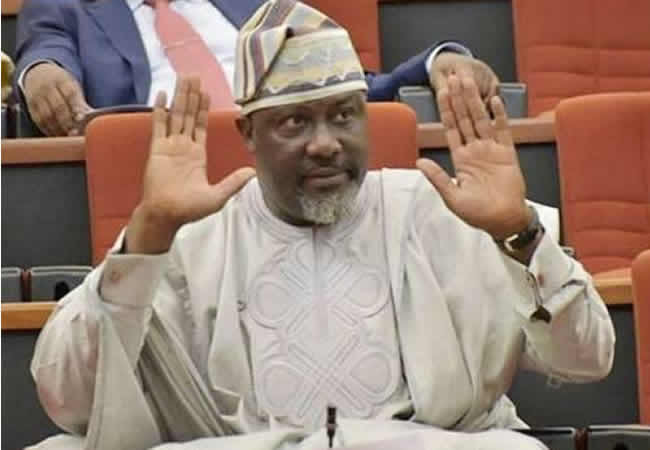Dino Melaye, a former Kogi lawmaker, has launched a scathing attack on the Peoples Democratic Party (PDP), accusing it of being compromised and effectively operating as a subsidiary of the ruling All Progressives Congress (APC). Melaye’s allegations, aired on Channels Television’s Politics Today, paint a picture of a weakened opposition party subservient to the ruling party, raising concerns about the health of Nigeria’s democratic landscape. He claims the PDP’s actions, including scheduling meetings seemingly dictated by the APC, demonstrate a lack of independence and a willingness to comply with the ruling party’s agenda. This alleged complicity, according to Melaye, undermines the PDP’s role as a viable opposition force and raises questions about its commitment to holding the government accountable.
Melaye further buttressed his argument by highlighting the perceived inaction of PDP governors. He questioned their commitment to acting as a true opposition, contrasting their current conduct with the expected behavior of powerful regional leaders in a multi-party system. He argued that their apparent acquiescence to the APC’s dominance suggests a lack of genuine opposition and possibly even collusion. This alleged lack of robust opposition from PDP governors, who wield significant influence within their states and the political landscape, further strengthens Melaye’s claim of a compromised PDP. He suggests that the remaining members within the PDP are effectively holding the fort for the APC, further eroding the party’s credibility as an independent entity.
Furthermore, Melaye criticized former Niger State Governor, Babangida Aliyu, for comments interpreted as supportive of the APC. He cited Aliyu’s purported call for tolerance of the current administration, questioning whether such a statement could emanate from a genuine opposition figure. This, according to Melaye, illustrates a broader trend of PDP members undermining the party’s oppositional stance and indirectly supporting the APC. By highlighting these instances, Melaye aims to expose what he perceives as a systemic issue within the PDP, where prominent figures seemingly prioritize personal or political expediency over their party’s purported oppositional role.
Melaye characterized the current political climate as precarious, using vivid language to depict a troubling scenario where the “devil determines the next menu for his children.” This metaphorical language underscores his deep concern about the state of Nigerian politics and the perceived erosion of democratic principles. He suggests a manipulative force at play, controlling the political narrative and influencing the actions of those in power. This sense of urgency and alarm underlies his call for a new political movement, one untainted by the alleged compromises and manipulations that he sees plaguing the established opposition.
Having distanced himself from the PDP, Melaye now aligns with the African Democratic Congress (ADC), portraying it as a “moral movement” and a “national altar call” for Nigerians seeking genuine change. He framed joining the ADC as a response to a moral imperative, a move for those disillusioned with the existing political landscape and yearning for a new beginning. He likened it to a religious awakening, suggesting that only those truly committed to change and willing to leave the “darkness” of the current political system would heed the call of the ADC. This framing aims to position the ADC as a beacon of hope, attracting those who share his critical view of the established parties and his desire for a different kind of politics.
While acknowledging that not everyone within the ADC is a “saint,” Melaye emphasized the shared concern for Nigeria among its members. This qualification acknowledges the inherent imperfections of any political movement while simultaneously reinforcing the idea of a shared purpose and commitment to national betterment. He presented the ADC as a platform for those genuinely invested in improving Nigeria’s future, contrasting this with the alleged complacency and compromise he observed within the PDP. By positioning the ADC as a morally driven alternative, Melaye seeks to attract those who share his disillusionment and his hope for a more accountable and effective political system. His criticisms of the PDP and his advocacy for the ADC ultimately reflect his broader concerns about the state of Nigerian democracy and his desire for a more robust and genuine opposition.














